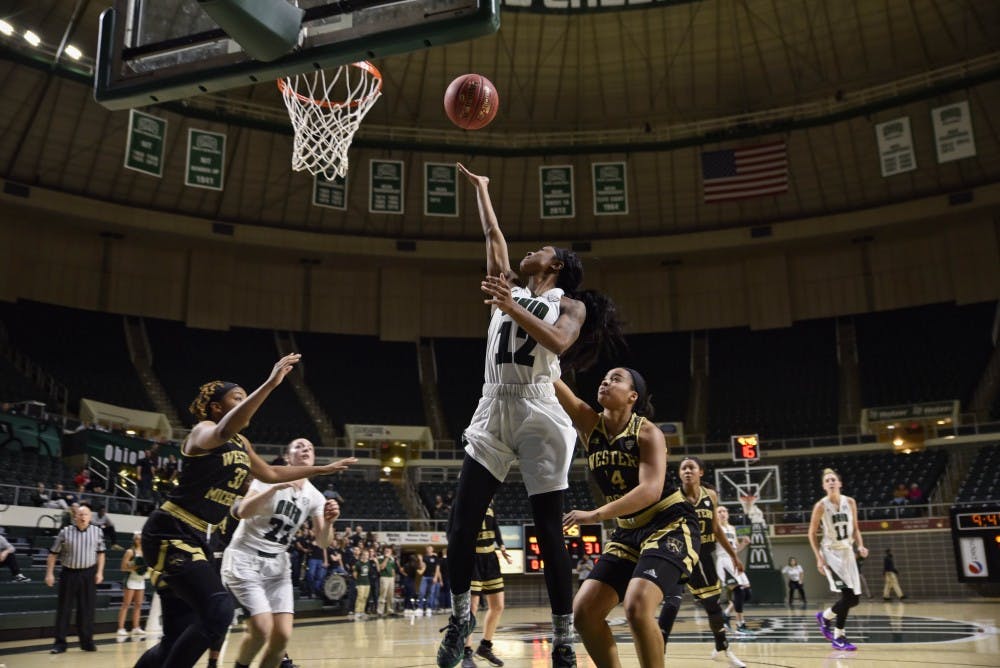“We’re never gonna be the bigger team.”
That's a phrase coach Bob Boldon has uttered dozens of times this season. When Jasmine Weatherspoon was out, that was especially the case.
And yet, heading into this weekend’s matchup with Ball State, the Bobcats are in the midst of their best rebounding stretch of the season. In the last four games, Ohio out-rebounded opponents by 2.25 rebounds per game, good for seventh in the conference if the Bobcats keep it up over a full season.
Seventh place might not sound like much, but it’s a significant improvement over the current second-to-last place ranking. In that stretch, Weatherspoon has played 18 minutes and has recorded two rebounds.
That doesn’t mean Ohio is a better rebounding team without Weatherspoon. The sample size is entirely too small, and to suggest that a team would be better off rebounding without the fifth-leading rebounder in the conference would be insane.
But these numbers do suggest that the Bobcats might not be as inherently bad a rebounding team as they’ve shown over Boldon’s tenure.
Since Boldon took over at Ohio, the highest rebound per game ranking the Bobcats achieved was seventh, the year they went to the NCAA Tournament. Their second-best team of the last several years was last year’s team, which ranked eighth in rebounding.
Other than the unceasing battle against zone defenses, rebounding has been the Achilles’ heel for Boldon’s team this season. But recently, they’ve begun to shown competence in that area.
The two seasons before this one proved the Bobcats are capable of great heights if their rebounding numbers are even slightly below average.
As Weatherspoon’s health improves, the Bobcats could massively improve one of their biggest deficiencies if they continue to play as if she isn’t on the court.
“We’d like to think that we will keep rebounding like we have around Jasmine when she comes back,” Boldon said in practice last week.
Rebounds matter to the Bobcats because of the possession game. Boldon said in practice last week he prefers to have his teams slow the game down and limit opponent possessions.
When his team isn’t shooting well, Boldon believes it can create enough extra possessions via turnovers to outscore the opponent, despite the shooting struggles.
When Ohio allows offensive rebounds, it is giving opponents extra possessions. Forcing turnovers is a nice counterpunch, but relying on them can be dangerous, as Boldon himself has admitted.
So, no, Ohio is not going to be the bigger or better team going for rebounds, but maybe it doesn't have to be. If the past is any indicator, scrapping its way to average could help it win the conference.





